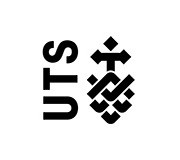What is the study about?
It is recognised that work Is changing, shaped by changes in society, including the economy and technology. The BeLongEng project will study how and why engineering work is changing, and will provide an evidence base for policy and education changes.
How often will you survey participants?
We will be surveying participants in 2022, 2023, 2025, 2027, 2029, 2032, 2037 and 2042. We will send out future surveys around May of each of these years.
When did the project start?
The project started with a thought in 2018. Recruitment for the first data wave started finished in June 2022.
Has anything been done like this before?
Longitudinal studies are common in health fields. There have been some longitudinal studies on engineering students, and those entering the workforce, but none which track engineers throughout their careers.
What does BeLongEng mean?
We are interested in what it means to be an engineer (Be), as well as the sense of belonging to the profession. Long represents the longitudinal nature of the study, and Eng represents engineering.
Will you be expanding the project to other regions?
The initial focus of the BeLongEng project is on engineers in New Zealand and Australia. We may expand to other regions, depending on resources and the applicability of the research methodology to different regions.
How will participants privacy be protected?
Participant’s privacy is of utmost importance to us. We will be following strict human research ethics protocols to protect the information and identity of our prticipants.
Who is involved in the study?
The study is being led by Assoc. Prof. Enda Crossin from the University of Canterbury. The Project Team team are from universities across New Zealand and Australia.
How can I get involved?
We have a number of pathways for involvement in the study, depending on your interest.
How are participants data protected?
We are following strict data protection and privacy protocols. This includes de-identyfing participants prior to data analysis, and only reporting on outcomes for a minimum number of participants. The study has been reviewed and approved by the University of Canterbury's Human Research Ethics Committee (Ref HREC 2021/157). Further details on protocols are available on the participant information page.
Human Research Ethics Committee Approval





